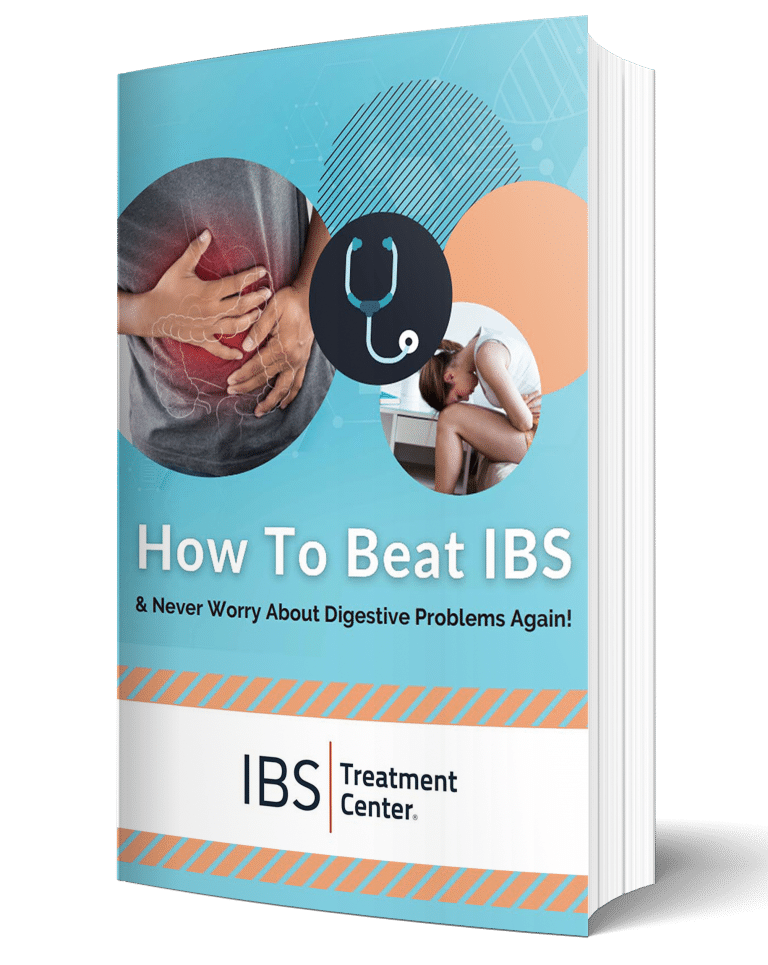Here’s what we’re going to cover
- What’s the Difference Between An Allergy and An Intolerance?
- So What’s An Intolerance?
- So How Do You Test For Food Intolerances?
- Elimination Diets
Let’s talk about testing for food allergies and food intolerances. Alright, are you ready to open up the biggest can of worms in the medical community? Great. Me too. Let’s do it.
What’s the Difference Between An Allergy and An Intolerance?
Before we can explain how to test for these, we have to discuss and define the difference between a food allergy and a food intolerance. I know, it’s pain and you don’t want to do it, but hear me out. These terms are not defined by science or by logic (well, science tried, but it lost), they are defined by tradition.
A food allergy is defined by allergy doctors. And they define an allergy by symptoms. And what they call an allergy is usually one of about 5 symptoms.
If you have anaphylaxis, which is where your tongue or mouth swell up and you might have trouble breathing, that is considered an allergic reaction. The other allergic reactions include allergic rhinitis, which is basically itchy eyes and runny nose, hives (which is swelling and itching of the skin), eczema, and asthma.
Testing for these types of allergies is often done by an allergist, and they will likely do a skin scratch or skin prick test to see if your skin swells up in reaction to the food. If it does, then it’s considered an allergy.
We also often see IgE antibodies in the blood with these kind of reactions, but not always. And if you do have elevated IgE antibodies to a food, but you don’t have any of the symptoms mentioned above, then it’s unlikely that your allergist will diagnose you with an allergy. They’ll most likely ignore those inconvenient results and call them irrelevant. That’s not my idea of good science, but that’s usually what happens.
Skin testing still has value, but it’s for a very limited number of reactions. It’s for anaphylaxis, allergic rhinitis, hives, eczema and asthma. Use it, but realize it’s limitations.
So What’s An Intolerance?
An intolerance may be even more confusing. Because at this point you might be tempted to think that an intolerance is not an inflammatory reaction or that it does not involve the immune system. But that is not necessarily the case.
Let’s take celiac disease, a type of gluten intolerance. We know that the immune system is clearly involved. We can measure IgG and IgA antibodies in gluten intolerance. And we know that it can cause all kinds of symptoms, including all kinds of inflammatory symptoms.
But it probably won’t cause one of the symptoms that we mentioned that define allergy symptoms. (Although it can cause hives and a type of skin reaction much like eczema.)
So why is it called an intolerance? It just is. That’s the way it’s always been, and it’s not going to change any time soon. What can I tell you?
Now let’s consider another kind of intolerance, lactose intolerance. A lactose intolerance is NOT an immune reaction. It’s not an antibody reaction, and it doesn’t show up on blood tests. A lactose intolerance is an enzyme deficiency.
People who don’t have this enzyme have trouble digesting lactose, which of course is in milk.
So the word “intolerance” is not consistently used in medicine, and it has no standard and doesn’t really mean anything. Sorry about that.
So How Do You Test For Food Intolerances?

I have found food antibody testing to be extremely helpful in testing for what most people would call a food intolerance. Antibodies are produced by the immune system. And just like you produce antibodies against viruses, you can produce them against foods.
Recall that we also talked about antibodies when we discussed testing for food allergies. Now w’ere talking about intolerances, but we could be calling these allergies as well. It would not be incorrect, it’s just not how most doctors are doing . But who are doctors to tell you that you’re doing it wrong? I mean the medical system has already made a mess out of the entire issue.
Ok, back to measuring antibodies for food intolerances. First, I should point out that people do not normally produce antibodies against food. If I had a dollar for every time a doctor told a patient that everyone produces antibodies against food, or that these results are meaningless, I’d have a lot more money.
That idea is not based on science, it’s based on fear and ignorance. And they didn’t learn it in medical school, because there has never been any evidence that people normally produce antibodies against food. And I know, because I’ve run literally thousands of these tests. And most people don’t have antibodies to most foods.
So when you do have antibodies against a food, you should ask yourself a question, “What is going on? Why is my immune system reacting against this food?” And you should be concerned. Because that isn’t normal.
Second, you need to know that just because you have an antibody reaction against a food does not mean that you are going to be able to discern any symptoms that it’s causing. Just because you can’t feel the antibody reaction, it does NOT mean that the lab work is wrong. It just means that it may not be causing a symptom that you can see or feel right now.
If that doesn’t make any sense, let me give you a well established example. Many people have celiac disease. They have antibodies that show that they have celiac disease. Most people, probably even most doctors, assume that those people are very sick (because most people don’t get tested until they are very sick).
However, large studies have clearly shown that about half of all people who test positive for celiac disease are asymptomatic. They don’t notice any symptoms when they eat gluten. But that doesn’t mean that they don’t have celiac disease. And it doesn’t mean that there aren’t any negative impacts on their body when they eat gluten. We know that there are, but they can’t feel it.
The same is true when you have an antibody reaction against any other food, whether it’s an IgE, IgG, or IgA reaction. Those aren’t normal, and it’s likely leading to some kind of inflammation somewhere, even if you can’t feel it.
IgE, IgA, and IgG are different types of antibodies. When looking for these antibodies we normally look in the blood, but they might also be found in the stool or in the mucous membranes. And each place and each type of antibody is different and represents something different, so don’t expect them all to arrive at the same result. They usually don’t match. They are each different ways of looking into the immune system to get a glimpse of what is happening there.
They also are NOT the kinds of tests that most doctors will do. And even doctors who do these kinds of testing don’t always know what to do with the results. This area is the fringe of the wild wild west of an already, let’s just say, interesting medical system.
The same goes for the labs. This is very delicate lab work fraught with potential for error. A good lab can produce the same results over and over again from the same blood and same person. A bad lab can’t do that. Your lab work normally won’t change much, even over years, unless you change your diet.
Testing for IgG and IgA antibodies is how you test for most food intolerances.
Elimination Diets
Then there are reactions for which there are no tests. The only way to figure these out is to take them out of your diet. Don’t underestimate the value of elimination diets.
There are a lot of food reactions that simply won’t show up on any kind of test. The best way, and really the only way, to figure out if you have these kind of food reactions is to remove the food or substance from your diet.
This is generally how people discover if they have a reaction to a food additive, or preservative, artificial colors and flavors, artificial sugars, and the like. But it’s also how many food intolerances and allergies are discovered.
There are two keys to making this work. The first is that you need to be in tune with your body and how you are feeling. Pay attention to everything in your health, from your energy, your sleep, your immune system, your headaches, heartburn, digestion, mental state, skin, sleep, everything.
The second key is that you have to be very aware of everything that you ingest. Everything. You have to read every ingredient. And then you have to avoid the substance that you are testing long enough for it to make a difference. That can take a day or two, or it can take weeks.

Then when you reintroduce dairy, pay close attention to exactly how you feel. And pay attention to it for several days. If you weren’t sure that it made any difference while you were avoiding it, it should become clear when you reintroduce it.
So there you have it. The three most useful and reproducible way of testing for food allergies and intolerances are traditional allergy skin testing, unconventional but far more comprehensive IgG and IgA antibody testing, and elimination diets.
None of them is perfect. And none of them can replace the other. They each have value.
I wish you the best of luck in figuring out your own food reactions. In my clinical experience and in my personal life it has had a far more profound impact on my health and my patient’s health than anything else. I acknowledge that it’s not always easy to do. And there are other factors that can make you feel reactive to a food that we can’t get into here. But it’s totally worth it if you want to feel your best. So, if you need help sorting all of this out, please contact us at the IBS Treatment Center.

Dr. Wangen is the founder and medical director of the IBS Treatment Center, the award winning author of two books, and a nationally recognized speaker on digestive disorders. He has been on ABC, NBC, and Fox as well as public radio, and was named one of Seattle’s Top Doctors by Seattle Magazine.

